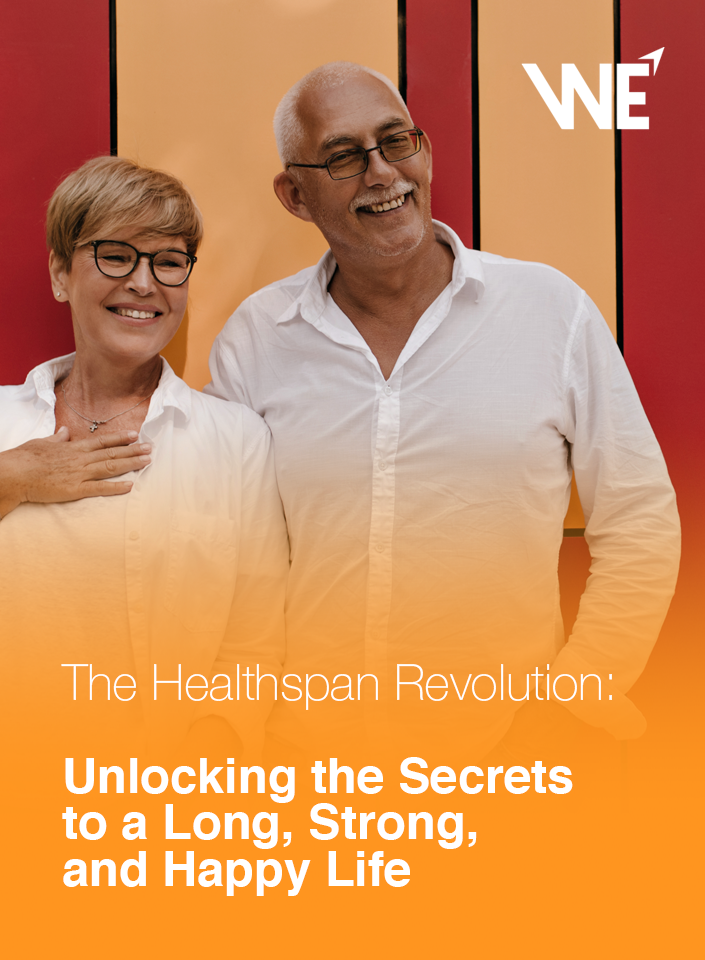The quest for a long, healthy, and fulfilling life is a timeless pursuit, and recent scientific findings are shedding new light on ways to enhance our health span – the length of time we live in optimal health. A recent article in The Guardian detailed some of the most effective strategies for maximizing healthspan and the science behind them (Parker-Pope, 2023). In this article, we will delve into these findings and explore how you can apply them to your own life.
- Emphasize plant-based foods
A plant-based diet has long been touted for its health benefits, and research continues to support this notion. Studies have shown that individuals who consume primarily plant-based foods tend to have lower rates of heart disease, obesity, type 2 diabetes, and certain types of cancer (Satija et al., 2017). Furthermore, a meta-analysis found that adhering to a predominantly plant-based diet may be associated with a lower risk of all-cause mortality (Dinu et al., 2017).
- Prioritize physical activity
Regular exercise is a cornerstone of a healthy lifestyle, and its impact on our healthspan is significant. Research has shown that consistent physical activity can lower the risk of various chronic diseases, including cardiovascular disease and type 2 diabetes, and may even slow the aging process at a cellular level (Booth et al., 2017; CMAJ, 2017). To reap these benefits, aim for at least 150 minutes of moderate-intensity aerobic activity or 75 minutes of vigorous-intensity aerobic activity per week (WHO, 2020).
- Cultivate social connections
Strong social networks are essential for both our mental and physical well-being. Studies have revealed that individuals with robust social connections tend to have lower rates of depression, better cognitive function, and a reduced risk of premature mortality (Holt-Lunstad et al., 2010). To foster meaningful connections, engage in activities that promote social interaction, such as joining clubs, volunteering, or attending community events.
- Focus on mental health
Taking care of our mental health is just as important as our physical well-being. Research has shown that individuals who practice mindfulness, engage in stress-reduction techniques, and maintain a positive outlook on life tend to have better overall health outcomes (Gotink et al., 2015; Steptoe et al., 2015). To bolster your mental health, consider incorporating activities such as meditation, yoga, or journaling into your daily routine.
Conclusion
By adopting a plant-based diet, staying physically active, fostering social connections, and prioritizing mental health, we can greatly enhance our healthspan and enjoy a long, strong, and happy life. The science behind these strategies is robust, and implementing them in our lives can lead to a wealth of benefits for both body and mind.
References
Booth, F. W., Roberts, C. K., & Laye, M. J. (2017). Lack of exercise is a major cause of chronic diseases. Comprehensive Physiology, 2(2), 1143-1211.
CMAJ. (2017). Exercise and the aging brain: a Canadian study. Canadian Medical Association Journal, 189(45), E1379.
Dinu, M., Abbate, R., Gensini, G. F., Casini, A., & Sofi, F. (2017). Vegetarian, vegan diets and multiple health outcomes: A systematic review with meta-analysis of observational studies. Critical Reviews in Food Science and Nutrition, 57(17), 3640-3649.
Gotink, R. A., Chu, P., Busschbach, J. J., Benson, H., Fricchione, G. L., & Hunink, M. G. (2015). Standardised mindfulness-based interventions in healthcare: An overview of systematic reviews and meta-analyses of RCTs. PloS One, 10(4), e0124344.
Holt-Lunstad, J., Smith, T. B., & Layton, J. B. (2010). Social relationships and mortality risk: A meta-analytic review. PLoS Medicine, 7(7), e1000316.
Parker-Pope, T. (2023, March 28). Healthspan revolution: How to live a long, strong, happy life. The Guardian. Retrieved from https://www.theguardian.com/lifeandstyle/2023/mar/28/healthspan-revolution-how-to-live-long-strong-happy-life
Satija, A., Bhupathiraju, S. N., Spiegelman, D., Chiuve, S. E., Manson, J. E., Willett, W., … & Hu, F. B. (2017). Healthful and unhealthful plant-based diets and the risk of coronary heart disease in US adults. Journal of the American College of Cardiology, 70(4), 411-422.
Steptoe, A., Deaton, A., & Stone, A. A. (2015). Subjective wellbeing, health, and ageing. The Lancet, 385(9968), 640-648.
World Health Organization. (2020). WHO guidelines on physical activity and sedentary behaviour. Geneva: World Health Organization. Retrieved from https://www.who.int/publications/i/item/9789240015128

